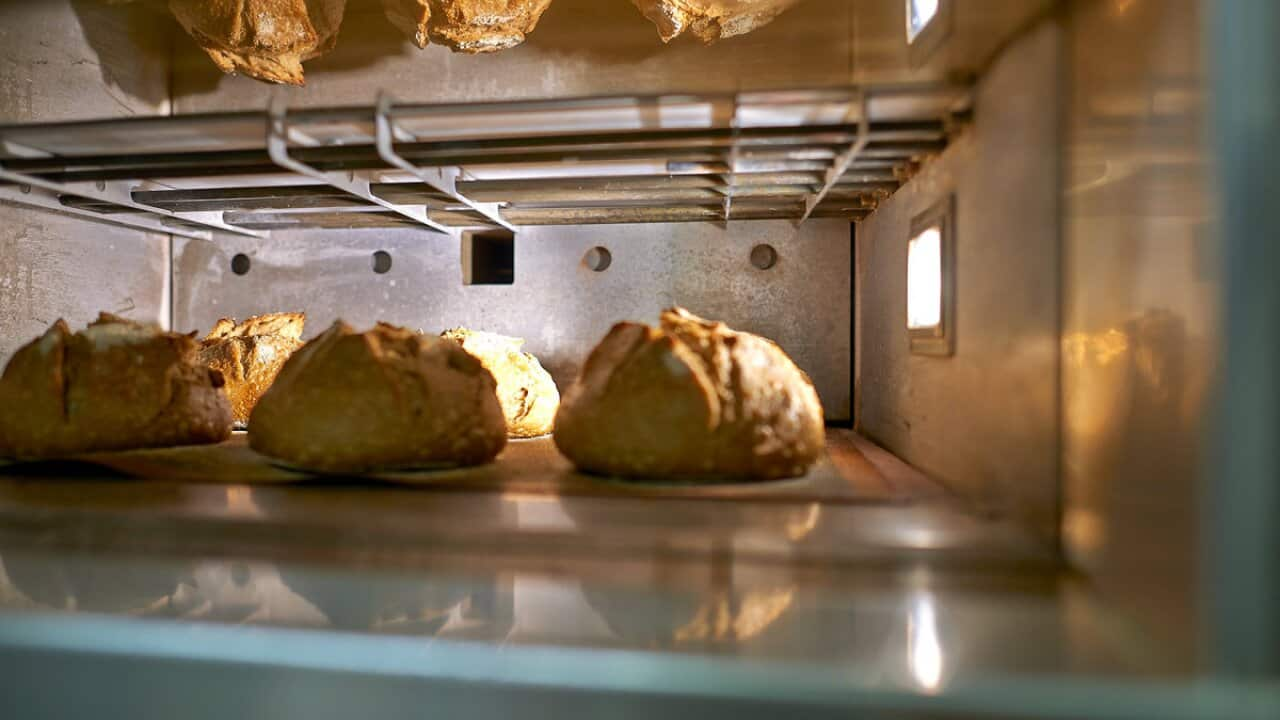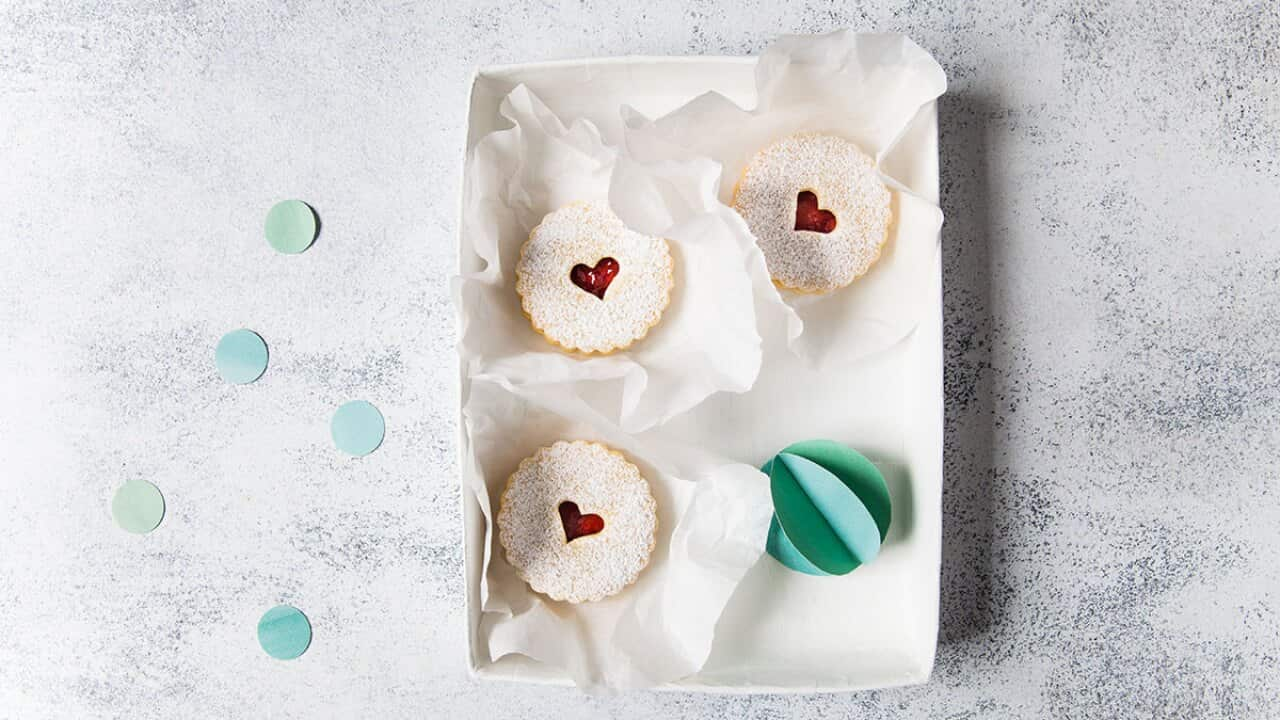Bread is a huge part of Germany's culture. In fact, its bread culture is arguably unrivalled, with it officially added to the in 2014.
According to the Australian branch of the German cultural institute Goethe Institute, Germans love bread so much that on average they consume of bread a year. That amount outdoes their French neighbours at just 55 kilograms a year — take that, baguette!
German Vicky Wilhelmus, who co-owns a German hot-dog catering business with her husband after moving to Australia 15 years ago, tells SBS Food, "Bread in general plays a massive part of the German people's diet, you'll find a bakery every couple hundred meters everywhere in Germany.
"There are many food traditions in Germany, most of them revolve around special dates like Easter and Christmas. For example...we celebrate Christmas time [in] the four weeks leading up to Christmas.
"A lot of baking and meeting the family for coffee and cake [and] Christmas cookies on each Sunday before Christmas is absolutely crucial. There is even a little brioche man given and eaten by adults and children of all ages to celebrate St. [Martin's] Day in November. But really, every occasion has a special baked good linked to it." Notably, bread also has a long history in Germany as a housewarming gift.
Notably, bread also has a long history in Germany as a housewarming gift.

Bread and pastries are gifted for several special occasions in Germany. Source: Vicky Wilhelmus
"The bread-giving tradition for house warming dates back many centuries and basically just means the house will always be blessed with enough food and the salt means prosperity," Wilhelmus explains.
"Salt was a luxury back in the day and meant the giver is especially generous and again gives your family many blessings for the future."
With just a little flour, salt and the heat of an oven, you can make something truly delicious.
An assortment of goodies accompanies the bread gift, in what's known as a geschenkkorb. The assortment typically comprises honey, candles and even a broom. Each item signifies something: the honey is a sweet gesture, the candles symbolise happiness while the broom 'sweeps' away bad luck or evil spirits left behind by the previous occupants.
Thomas Bühner, a three-Michelin-star chef in Germany, says this gifting is one of his favourite traditions. "With just a little flour, salt and the heat of an oven, you can make something truly delicious," says the chef.
Pumpernickel, katenbrot and bretzel: why would you not share some happiness in the form of a well-baked and nutrient-packed German bread? With over 3,200 varieties of bread, according to the German Institute for Bread, there's so much to love when visiting a backerei (bakery) and it's something that German-Australian Nadja Warner misses the most about her country.
BRETZEL, NOT PRETZEL

From Bavaria with love: bretzels (not pretzels)
Eighteen years ago, Warner traded fir trees for Australia's coastal life. She says, "The one food item I long for from my home country is the solid, tasty German bread. In the UK, I would bake my own bread for a couple of years to make up for this. Luckily in Australia, you have a decent artisan bread selection to choose from that comes close to the bread I grew up with."
But Warner says that bread is not just gifted for housewarmings. People give each other sweet pastries during other special occasions, too.
"A more common and still wide-spread food giving tradition is to hand out a special form of doughnuts called küchle or krapfen at times of spiritual celebrations such as communion, confirmation, and weddings."
The pastries usually have a jam or vanilla filling, but vary from region to region.
"Villages in the countryside used to even have their very own küchle baker [who] specialised in producing these tasty treats that couldn't be bought normally in the bakery."







